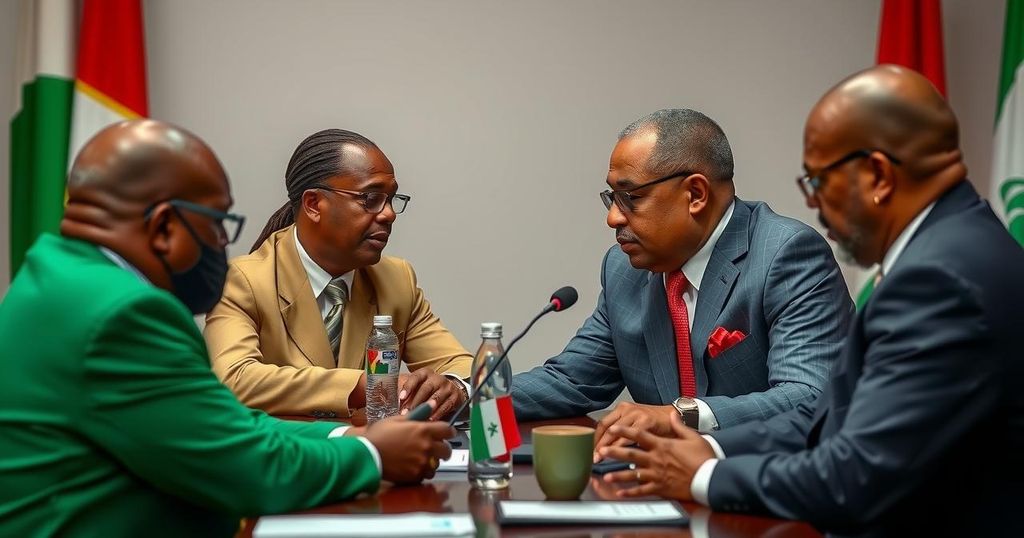Guinea Bissau President Prolongs Political Instability by Postponing Elections Indefinitely
President Umaro Sissoco Embalo has postponed the legislative elections scheduled for November 24 in Guinea Bissau, extending the nation’s political instability. Financial and logistical issues contributed to this decision, which also brings uncertainty to the timing of forthcoming presidential elections amid ongoing tensions with the opposition. The country continues to struggle with economic hardships and a turbulent political history.
On Monday, President Umaro Sissoco Embalo of Guinea Bissau announced the indefinite postponement of legislative elections originally scheduled for November 24, effectively extending the political instability that has beset this small West African nation. The president had initially set this date following his dissolution of parliament in December 2023 due to an attempted coup, which escalated tensions within the country. Amid escalating logistical and financial challenges, the situation had become increasingly untenable, prompting the announcement of the delay. The postponement came after warning signs emerged, with Aristides Ocante da Silva, the Minister for Territorial Administration, indicating that the elections were unlikely to proceed as planned. On November 1, he highlighted the challenges posed by insufficient funds and organizational obstacles, which undermined the feasibility of conducting elections. President Embalo confirmed the cancellation of the July 2024 decree that had established the election date; however, no new timeline has been articulated. Compounding the uncertainty surrounding the legislative election is the ambiguity concerning the timing of the presidential election. The coalition aligned with the African Party for the Independence of Guinea and Cape Verde (PAIGC) has maintained a parliamentary majority since the June 2023 elections, leading to increased tension between the president and the opposition leader. As one of the poorest nations globally, Guinea Bissau faces significant financial hurdles in holding elections, reflecting the broader challenges it has encountered since gaining independence from Portugal amid a backdrop of political strife and corruption.
Guinea Bissau has a history marked by political instability and coup d’états since it gained independence from Portugal in 1973. Over the past decade, there have been efforts to restore constitutional governance, though challenges remain prevalent. The current political landscape includes a tense coexistence between President Embalo and the opposition-related PAIGC, which complicates governance and the organization of forthcoming elections. The postponement of these elections exacerbates the state’s political limbo, raising concerns over the future of democracy in the nation.
The indefinite postponement of legislative elections in Guinea Bissau underscores the ongoing political instability and financial limitations facing the country. President Embalo’s cancellation reflects a broader set of challenges, including the need for a clear timeline for future elections, and highlights the ongoing tensions with the opposition. As Guinea Bissau seeks a pathway to restore political order, the indefinite delay in elections adds to the persistent uncertainties that have affected the nation’s governance.
Original Source: punchng.com




Post Comment